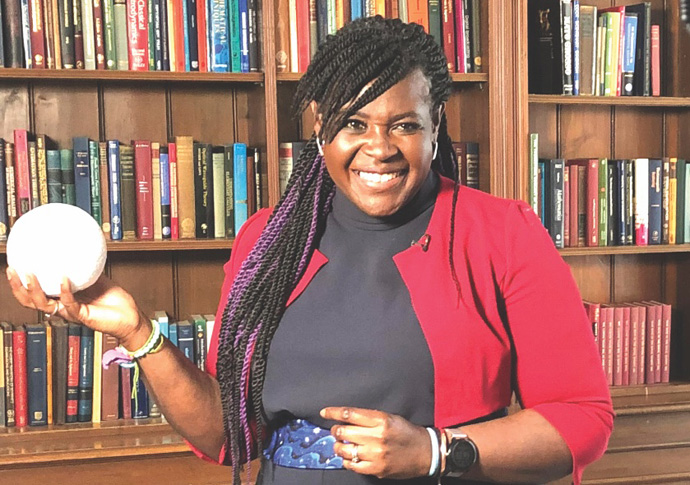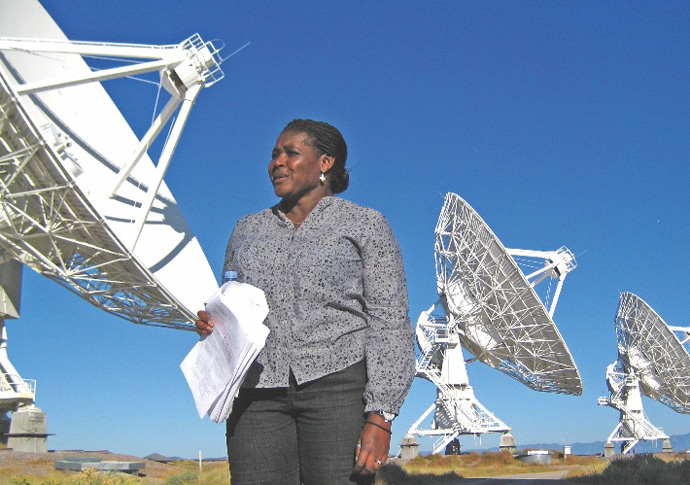How a ‘hands-on experiment’ can benefit science
Kids need that ‘eureka moment’ says The Sky at Night’s star astronomer
Friday, 30th August 2024 — By Caitlin Maskell

Dame Maggie Aderin-Pocock praises ‘outside the box’ thinking
A TOP presenter of the BBC’s flagship space show says more “hands-on experiments” are needed in schools to get the next generation interested in science.
The Sky At Night astronomer Dame Maggie Aderin-Pocock told the Extra pupils needed to be helped to feel that “eureka moment” in the classroom. She spoke about her experience at schools and Imperial College London and an extraordinary career that has included working with landmines for the ministry of defence and on the James Webb telescope programme that is beaming back extraordinary images from the dawn of the universe.
Dame Maggie said: “We need creativity in science, revolutionary ideas, pushing the boundaries and thinking differently. We want people to be thinking outside the box. What else can we do with an equation, rather than just learning it?
“And I think a lot of that comes from hands-on experiments, which, especially since Covid, we’ve been phasing out of schools. I think we need to bring those back.
“When you speak to many people about what science lessons you most remember at school it was mixing chemicals or dissecting something. It’s those hands-on things that really stick in people’s minds.
“We also need to give kids more leeway.”
Dame Maggie (pictured) recalled a favourite secondary science teacher who made the children feel like they were “making a discovery for the first time, getting that eureka moment”.
The teacher, she said, “allowed us to investigate and do experiments our way and come to our own conclusions.

[BBC/The Sky at Night]
“I think we need more of that rather than ticking the box saying ‘you’ve learnt this, OK, let’s move on’. We need space in the curriculum for kids to thrive and really explore.”
At Imperial College, where she gained a PhD in mechanical engineering, she said, 5 per cent of students were women, “and there was only one other black person and he was a man”. And she added: “There is more diversity now, but not enough really, it doesn’t reflect society quite yet, but it’s moving in the right direction. That’s why I do quite a bit of science engagement in public, going out and speaking to people.
“People sometimes say you have to ‘see it to be it’ and so it’s about trying to promote role models especially with space and astronomy. Every culture across the world has looked at the night sky and wondered.
“When I was growing up I thought space and astronomy was done by white guys dressed in togas because that’s all you heard about, the Romans, the Greeks, but it’s just so much bigger than that.”
Another inspiration, she said came from television.
“I think that’s one of the things Star Trek gave me, was that all these people all over the universe can work together, including aliens like Spock.
“I just loved that, it transcended the artificial barriers that we create here on Earth.”
Dame Maggie’s most recent book, Webb’s Universe: The Space Telescope Images That Reveal Our Cosmic History, looks at images the James Webb telescope has taken alongside a detailed commentary, discussing the knowledge we have of space and how different people have interpreted space throughout time.